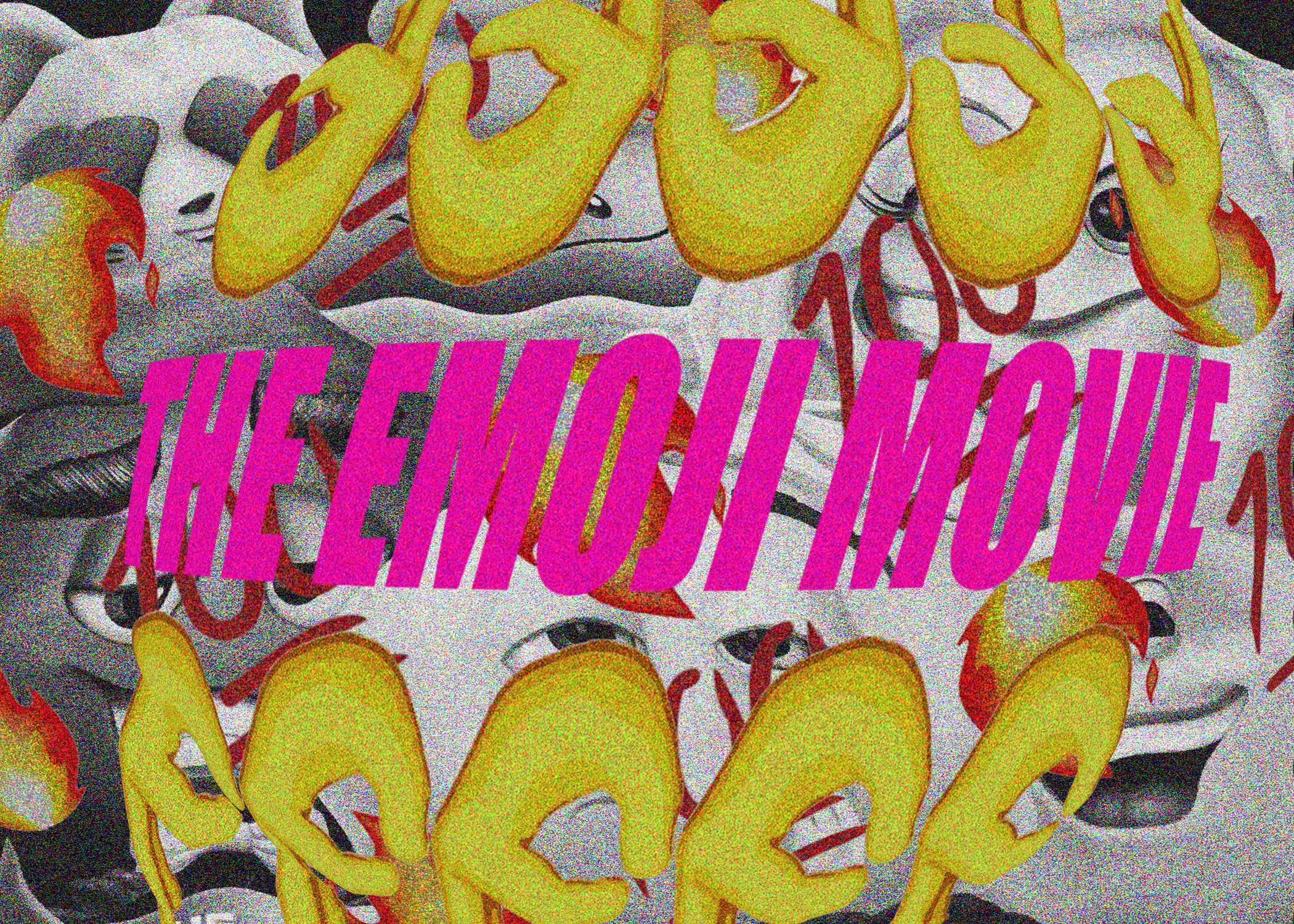What makes great cinema? Must it move the masses? Need it withstand the test of time? To these questions and more, I proclaim yes. In a cultural milieu so saturated with cash-grabs and uninspired drivel, it saddens me that the few truly brilliant works of modern filmmaking go woefully unrecognized.
As such, today, I stand behind a wrongfully-persecuted modern masterpiece, ready to defend the principles of artistic cinema. I stand against its critics, who shamefully fail to see its magnificence. I stand to recognize the gem that is The Emoji Movie (2017).
Behold the pinnacle of cinema. Though far surpassing beloved classics like Titanic (1997) and The Godfather (1972), The Emoji Movie was greatly underappreciated at the time of its release. The Emoji Movie is this generation’s Van Gogh.
The film follows Gene Meh (T.J. Miller), a meh emoji, as he struggles to find acceptance in a digital world due to his use of a wide array of expressions beyond his predestined emotion (😒). As Gene journeys to fit into the rigid expectations of his artificial society with his friends Hi-5 (James Corden) and Jailbreak (Anna Faris), he comes to accept his wonderfully unique role within Textopolis, one of the many sublocations within the digital space.
This 90-minute emotional rollercoaster is not limited to a single plotline. This narratively complex story also features a heartfelt adventure outside the digital space in a world much like our own. Alex (Jake T. Austin), the owner of the phone in which Gene and friends reside, struggles to win the affections of Addie (Tati Gabrielle), his longtime crush. His efforts, however, are only complicated by the emojis’ many shenanigans, along with the impending divorce of Gene’s parents, Mel (Steven Wright) and Mary (Jennifer Coolidge). The film’s branching storyline follows a philosophy of maximalism, much like emojis are at their core: brash and melodramatic. In order to capture all the stories it hopes to tell, the film keeps up a no-holds-barred pace for its entirety. Many have cited complaints about the film’s ostentatious speed; however, the constant flux between plots and subplots keeps the audience on their toes, ensuring there is never a dull moment.
The Emoji Movie perfectly encapsulates the core theme of self-acceptance and cherishing one’s differences—key in a world that asks us to be more homogenous. This is largely due to director Tony Leondis allowing the story to take inspiration from his own childhood growing up gay, as he revealed in an interview with Screenrant. As a result, The Emoji Movie is able to build a relatable and relevant, though underappreciated, emotional core.
The Emoji Movie’s appeal also stems from its star-studded cast of voice actors, which undeniably adds a layer of legitimacy to the film. With stars like the distinguished Sir Patrick Stewart and Sofía Vergara among its lineup, the emojis burst with life and feeling (Stewart, for context, voices the illustrious poop emoji). Each voice actor perfectly translates their represented emotion into speech throughout the dialogue, a tonal consistency often missed in other films with stock characters. Maya Rudolph’s Smiler, the film’s main antagonist, is an especially fantastic example: Though her brilliant smile and cheery tone never drop, her every word drips with a visceral condescension. The remaining emojis were also excellently portrayed, from Corden’s charming performance as the loveable Hi-5 to the highly emotional voice-acting behind Gene’s parents. This just goes to show that a cast of this caliber was ultimately fitting for a film as grand and ambitious as The Emoji Movie.
The cast was almost joined by Jordan Peele, who was originally slated to voice Stewart’s role as the poop emoji. However, Peele declined the role, catalyzing the end of his acting career, which demonstrates how truly influential this film was in the grand scheme of things.
For a film as controversially impactful as The Emoji Movie, it is no surprise that it also features a stellar soundtrack: An original score by composer Patrick Doyle was interwoven with modern hits and beloved classics to emphasize each mood the film invoked. Christina Aguilera’s “Feel This Moment” and Rihanna’s “Diamonds” perfectly pair with the development of Gene and Jailbreak’s relationship, for one. Even iconic songs such as “Disco Inferno” by The Trammps and the internet classic “Pen Pineapple Apple Pen (PPAP)” by Pikotaro were seamlessly aligned with the plot. A timeless score in every conception.
Even one of the biggest criticisms of the film—its abundance of product placement—worked well given its context: a phone, where everything is branded in real life. It is evident that Leondis and the rest of the film’s crew had a vast creative vision and needed the product placement to accomplish this. Furthermore, the integration of apps like Facebook and Candy Crush, alongside Instagram and Twitch, shows the filmmakers’ keen attention to detail and understanding of current youth culture as they accurately recreated the world within a teenage boy’s smartphone.
Though initially (and incorrectly) hailed a flop on Sony Pictures’ part, The Emoji Movie is instead indicative of what true quality looks like within cinema—a crowning achievement for a studio behind other gems like The Smurfs (2011) and Surf’s Up 2 (2017). Despite its misled critics, this film was able to combine a stellar plot, carefully crafted soundtrack, and star-studded cast into a wonderful work of fiction that for one reason or another, brought millions of viewers to tears.
In decades to come, many will give this film its rightful praise, showing that the past five years of criticism have been nothing but ignorance. As with the fates of all transformative art, soon the world will realize its error. Emoji is DaVinci; it is Shakespeare; it is Picasso.







